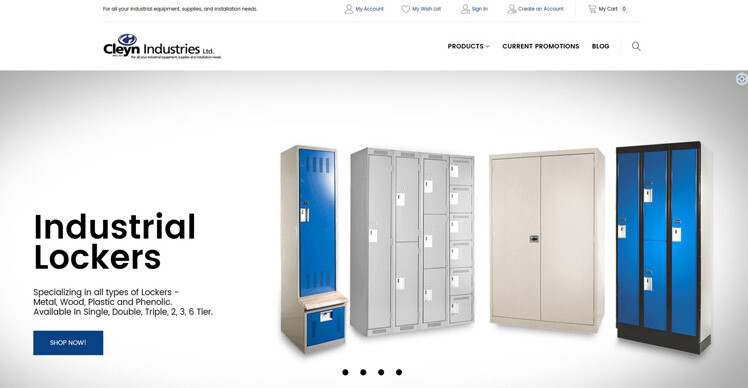eCommerce AI | Web Apps | AR/VR Software – ECA Tech
- Home
- 7+ Best Tips for ASP.NET Development
7+ Best Tips for ASP.NET Development

November 2, 2024 - Technology
ASP.NET development has become a cornerstone of web application development in today’s digital landscape. This framework, created by Microsoft, allows developers to build dynamic websites, web applications, and services with ease and efficiency. Whether you’re a seasoned developer or a newcomer to the field, understanding the ins and outs of ASP.NET development is crucial for creating robust and scalable applications. In this comprehensive guide, we will explore the key components, benefits, and best practices of ASP.NET development, alongside practical insights for getting started.
- Practical
- Sustainable
- Flexible
- Scalable
Understanding ASP.NET Development
What is ASP.NET?
ASP.NET is an open-source web framework designed for building modern web applications and services. It is a part of the .NET framework and provides developers with tools and libraries to create dynamic web content. One of the major advantages of ASP.NET is its ability to handle a variety of application types, including:
- Web Applications: Interactive sites that provide a range of functionalities, from e-commerce to content management.
- Web APIs: RESTful services that enable applications to communicate with one another over HTTP.
- Microservices: Lightweight services that can be developed and deployed independently, promoting scalability and flexibility.
Key Features of ASP.NET
Cross-Platform Compatibility: ASP.NET Core, the latest iteration of the framework, allows developers to build applications that run on various operating systems, including Windows, macOS, and Linux. This flexibility enables teams to choose their preferred environments and reduces deployment restrictions.
Performance and Scalability: ASP.NET development is optimized for performance, with features like asynchronous programming, which allows for better resource management. This is crucial for applications with high traffic or demanding processing needs.
Robust Security Features: Security is a top priority in web development. ASP.NET provides built-in security features, such as data protection, authentication, and authorization, to help developers safeguard their applications against common vulnerabilities.
MVC Architecture: The Model-View-Controller (MVC) pattern promotes separation of concerns, making it easier to manage complex applications. This architectural style allows developers to organize code logically and makes it easier to test and maintain applications.
Rich Ecosystem: ASP.NET benefits from a vast ecosystem of libraries, tools, and frameworks, such as Entity Framework for data access and Blazor for building interactive web applications with C#. This extensive support streamlines the development process and enhances productivity.
Why Choose ASP.NET Development?
1. Rapid Development and Deployment
One of the primary advantages of ASP.NET development is the speed at which developers can create and deploy applications. The framework includes numerous built-in tools and templates that expedite common tasks, allowing developers to focus on core functionalities rather than boilerplate code. Furthermore, with features like hot reload, developers can make changes to their code without restarting the application, significantly speeding up the development process.
2. Strong Community Support
ASP.NET development is supported by a large and active community of developers, which translates into a wealth of resources, tutorials, and forums for support. This community-driven ecosystem ensures that developers can find solutions to their challenges quickly and share best practices for building applications.
3. Integration with Modern Technologies
ASP.NET development easily integrates with modern technologies and practices. Whether it’s RESTful APIs for mobile applications, cloud services for scalability, or microservices architectures for flexibility, ASP.NET can accommodate these trends seamlessly. This adaptability ensures that your applications remain relevant and can leverage emerging technologies.
4. Support for Cloud-Based Solutions
As businesses increasingly migrate to the cloud, ASP.NET development has evolved to support cloud-based solutions. With Azure, Microsoft’s cloud platform, developers can deploy and manage their ASP.NET applications with ease. Azure offers services like Azure App Service, Azure Functions, and Azure SQL Database, enabling developers to build scalable and resilient applications that can handle varying loads and provide high availability.
5. Comprehensive Development Tools
Microsoft provides a suite of tools to enhance the ASP.NET development experience. Visual Studio and Visual Studio Code are powerful integrated development environments (IDEs) that offer features like debugging, IntelliSense, and built-in Git support, making it easier for developers to write and manage their code.
Getting Started with ASP.NET Development
1. Setting Up Your Development Environment
To begin ASP.NET development, you’ll need to set up your development environment. Here are the essential steps:
Install Visual Studio or Visual Studio Code: Download and install Visual Studio, which provides a full-featured IDE for ASP.NET development. Alternatively, Visual Studio Code offers a lightweight code editor that can be customized with extensions for ASP.NET.
Install .NET SDK: The .NET SDK is necessary for building and running ASP.NET applications. You can download the latest version from the .NET website.
Create a New Project: Once your environment is set up, create a new ASP.NET project by selecting a template that matches your project requirements. You can choose from options like ASP.NET Core Web Application, MVC Application, or Web API.
2. Building Your First ASP.NET Application
Let’s walk through the process of building a simple ASP.NET Core web application:
Create a New Project: Open Visual Studio and select “Create a new project.” Choose “ASP.NET Core Web Application” and click Next.
Configure Your Project: Give your project a name, choose a location, and select the framework version. You can also choose to enable HTTPS for secure connections.
Select a Template: Choose the template that suits your needs, such as Web Application (Model-View-Controller) or Web API, and click Create.
Run Your Application
After the project is created, you can run your application by pressing F5 or clicking the Start button in Visual Studio. This action will build the application and launch it in your default web browser. You should see a default landing page generated by the template you selected, demonstrating that your ASP.NET development environment is correctly set up.
3. Key Concepts in ASP.NET Development
To excel in ASP.NET development, it’s essential to understand the foundational concepts that underpin the framework:
MVC Architecture
The Model-View-Controller (MVC) pattern is a core component of ASP.NET development. This architectural style divides your application into three interconnected components:
- Model: Represents the data and business logic of the application. In ASP.NET development, models often correspond to database entities and include properties for data manipulation.
- View: This is the user interface part of the application. Views are responsible for displaying the data from the model in a user-friendly format. In ASP.NET development, Razor syntax is commonly used to create dynamic views.
- Controller: Controllers handle user requests, manipulate data via models, and pass the resulting data to the views for rendering. Controllers serve as the intermediary between models and views in ASP.NET development.
Routing
Routing is a crucial feature of ASP.NET development that defines how HTTP requests map to controller actions. ASP.NET Core uses a convention-based routing system, allowing developers to create user-friendly URLs. You can configure routing in the
Startup.csfile, ensuring that users access the right resources in a seamless manner.Middleware
Middleware is a powerful concept in ASP.NET development, enabling developers to handle requests and responses in a pipeline. Each piece of middleware can inspect, route, or modify the request and response. Common middleware components include authentication, logging, and error handling. You can easily add or remove middleware in the
Configuremethod of yourStartup.csfile, allowing for flexible application behavior.4. ASP.NET Development Best Practices
Implementing best practices in ASP.NET development can significantly enhance the quality, maintainability, and performance of your applications. Here are some key best practices to follow:
Code Structure
Maintain a clear and organized code structure in your ASP.NET development projects. Adhere to the principles of separation of concerns, placing models, views, and controllers in their respective folders. This organization not only improves readability but also makes collaboration easier for teams.
Dependency Injection
ASP.NET Core has built-in support for dependency injection, which helps manage dependencies between classes. Utilizing this feature in your ASP.NET development projects promotes loose coupling and easier testing. Always prefer constructor injection to make your classes more maintainable and testable.
Error Handling
Implement robust error handling to enhance user experience. Use middleware to catch unhandled exceptions and return meaningful error messages. Logging errors through a framework like Serilog or NLog will help you track issues in production and provide valuable insights for debugging during ASP.NET development.
Performance Optimization
Performance is critical in ASP.NET development. Optimize your applications by:
- Minifying CSS and JavaScript: Reducing file sizes improves load times.
- Caching Data: Use caching strategies, such as in-memory caching or distributed caching with Redis, to reduce database calls and improve performance.
- Asynchronous Programming: Leverage async/await in your code to improve scalability and responsiveness, especially in I/O-bound operations.
5. ASP.NET Development Tools and Libraries
To enhance your ASP.NET development process, you can leverage various tools and libraries:
Visual Studio
As the primary IDE for ASP.NET development, Visual Studio provides an extensive set of features, including:
- IntelliSense: Code completion and suggestions.
- Debugging Tools: Set breakpoints and step through code to troubleshoot issues.
- NuGet Package Manager: Manage third-party libraries easily and integrate them into your project.
Entity Framework Core
Entity Framework (EF) Core is an Object-Relational Mapping (ORM) framework that simplifies database interactions in ASP.NET development. With EF Core, developers can work with databases using C# objects instead of SQL queries, making data access more intuitive and reducing boilerplate code.
Swagger for API Documentation
If your ASP.NET development project involves building APIs, integrating Swagger can significantly enhance your API documentation. Swagger provides a user-friendly interface for testing API endpoints, making it easier for developers to understand and use your APIs effectively.
6. Advanced Topics in ASP.NET Development
As you become more comfortable with ASP.NET development, consider exploring advanced topics that can further enhance your skills and the capabilities of your applications:
Microservices Architecture
Microservices are small, independent services that communicate over HTTP or messaging protocols. ASP.NET development is well-suited for building microservices, enabling teams to develop, deploy, and scale applications more efficiently. By breaking down applications into smaller services, you can achieve better flexibility, scalability, and maintainability.
Blazor for Interactive Web Applications
Blazor is a relatively new framework within the ASP.NET development ecosystem that allows developers to build interactive web applications using C#. It provides a way to write both client-side and server-side code in C#, leveraging existing .NET skills. With Blazor, you can create rich, SPA-like experiences without relying heavily on JavaScript frameworks.
Unit Testing
Testing is a crucial part of ASP.NET development. Implement unit tests to validate your application’s behavior and ensure that it meets requirements. Tools like xUnit, NUnit, and MSTest can help you create and manage tests efficiently. Consider adopting Test-Driven Development (TDD) practices to enhance code quality and maintainability.
7. Deploying Your ASP.NET Applications
Deploying ASP.NET applications can be straightforward with the right approach. Here are some common deployment options:
Azure App Service
Microsoft Azure provides a powerful cloud platform for hosting ASP.NET applications. With Azure App Service, you can deploy your applications directly from Visual Studio or use CI/CD pipelines for automated deployments. This service offers features like auto-scaling, custom domains, and SSL certificates, making it an excellent choice for ASP.NET development.
Docker Containers
Containerization with Docker is becoming increasingly popular in ASP.NET development. By packaging your application and its dependencies into a container, you can ensure consistent behavior across different environments. Docker makes it easy to deploy applications on any platform that supports Docker, providing flexibility and scalability.
On-Premises Hosting
If your organization prefers to host applications on-premises, you can deploy ASP.NET applications to IIS (Internet Information Services). Ensure that your server meets the necessary requirements for hosting .NET applications and follow best practices for security and performance.
Conclusion
In conclusion, ASP.NET development offers a robust framework for building modern web applications and services. With its rich set of features, strong community support, and integration capabilities with modern technologies, ASP.NET has become a preferred choice for developers worldwide. By following best practices, utilizing advanced tools and libraries, and exploring new concepts like microservices and Blazor, you can unlock the full potential of ASP.NET development.
Whether you’re building a simple web application or a complex enterprise solution, understanding the principles of ASP.NET development is crucial for success. As you embark on your ASP.NET development journey, remember to stay updated with the latest trends and technologies to continuously improve your skills and deliver exceptional applications.
By investing time in mastering ASP.NET development, you are not only enhancing your capabilities as a developer but also positioning yourself to tackle the challenges of today’s dynamic web landscape. The skills you acquire in ASP.NET development will serve you well as you create innovative solutions that meet the needs of businesses and users alike.
With a solid understanding of ASP.NET development, you are now equipped to embark on exciting projects that leverage the framework’s power and flexibility. So, dive in, experiment, and let your creativity shine as you bring your ideas to life through ASP.NET development.

A powerful framework.
In conclusion, ASP.NET development stands out as a powerful framework for building modern web applications and services. Its rich features, cross-platform capabilities, and robust security measures make it a preferred choice for developers looking to create scalable and efficient solutions. By leveraging ASP.NET development, developers can take advantage of a strong community, extensive libraries, and advanced tools that streamline the development process and enhance productivity.
As you delve into ASP.NET development, remember to embrace best practices, such as maintaining a clean code structure, implementing effective error handling, and optimizing performance. Exploring advanced topics like microservices and Blazor can further elevate your projects and keep you ahead in the rapidly evolving tech landscape.
Ultimately, the skills and knowledge you gain through ASP.NET development will not only enhance your capabilities as a developer but also empower you to create innovative solutions that meet the diverse needs of users and businesses alike. Embrace the opportunities that ASP.NET development offers, and embark on a journey to transform your ideas into reality with this versatile framework. Your future projects will benefit greatly from the flexibility, efficiency, and power that ASP.NET development provides.
By clicking Learn More, you’re confirming that you agree with our Terms and Conditions.

FAQ
1. What is ASP.NET, and how does it differ from ASP.NET Core?
ASP.NET is a web framework developed by Microsoft for building dynamic web applications and services. ASP.NET Core is a modern, cross-platform, and open-source version of ASP.NET, designed to be modular and lightweight. While ASP.NET is primarily Windows-based, ASP.NET Core allows developers to build applications that can run on various operating systems, including Linux and macOS.
2. What are the main components of ASP.NET development?
The main components of ASP.NET development include:
- Web Forms: A traditional event-driven model for building web applications.
- MVC (Model-View-Controller): A design pattern that separates application logic, user interface, and input handling.
- Web API: A framework for building RESTful services that allow applications to communicate over HTTP.
- Razor Pages: A page-based programming model that simplifies the development of web pages in ASP.NET Core.
3. What programming languages can I use with ASP.NET development?
The primary programming languages for ASP.NET development are C# and VB.NET. However, C# is the most widely used language, especially in modern ASP.NET Core development. Additionally, you can use JavaScript and TypeScript for client-side scripting, as well as various front-end frameworks like Angular, React, and Vue.js.
4. How can I ensure the security of my ASP.NET applications?
To enhance the security of your ASP.NET applications, consider implementing the following practices:
- Use built-in security features such as authentication and authorization.
- Enable HTTPS to secure data transmission.
- Validate and sanitize user inputs to prevent SQL injection and cross-site scripting (XSS) attacks.
- Implement proper error handling to avoid revealing sensitive information.
- Regularly update your application and dependencies to patch vulnerabilities.
5. What tools and IDEs are recommended for ASP.NET development?
The primary IDE for ASP.NET development is Visual Studio, which offers a comprehensive suite of tools for building, debugging, and testing applications. Visual Studio Code is another popular choice, especially for those preferring a lightweight editor. Both IDEs support extensions and plugins that enhance functionality, such as integration with source control and package management.
How do I deploy an ASP.NET application?
ASP.NET applications can be deployed in several ways, including:
- Azure App Service: A cloud platform that allows for easy deployment and scaling of applications.
- Docker containers: For containerization, ensuring consistency across development and production environments.
- On-premises hosting: Deploying to Internet Information Services (IIS) on Windows servers. To deploy an ASP.NET application, you can use built-in publishing tools in Visual Studio or set up continuous integration and continuous deployment (CI/CD) pipelines for automated deployments.
